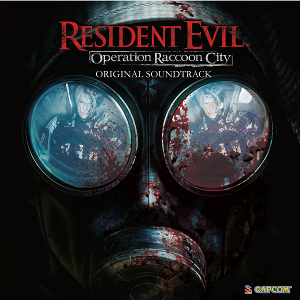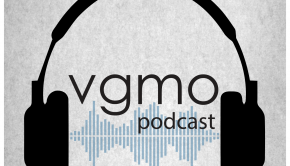Resident Evil -Operation Raccoon City- Original Soundtrack
 |
Album Title: Resident Evil -Operation Raccoon City- Original Soundtrack (Biohazard -Operation Raccoon City- Original Soundtrack) |
| Record Label: Suleputer (JP Edition); Sumthing Else Music Works (NA Edition) |
|
| Catalog No.: CPCA-10259/60; SE-3019-2 |
|
| Release Date: May 16, 2012; July 24, 2012 |
|
| Purchase: Buy at Amazon |
Overview
Operation Raccoon City sounded tantalising in theory: after years playing as the heroes, it was time to step into Umbrella’s shoes for a new perspective on the events of Resident Evil 2 and Resident Evil 3. However, the game hardly lived up to its potential and ended up being widely panned for its unimaginative design and shoddy gameplay from now-defunct developer Slant Six Games. One aspect that was done a little better was the audio. Rather than outsource the music to Hollywood, Capcom decided that the best man for the job was series’ veteran Shusaku Uchiyama, who previously worked on the soundtracks for Resident Evil 2, Resident Evil 4, REmake, and Darkside Chronicles. The final score has its moments, though was dragged down by the development issues and low budget of the game. The soundtrack was released in Japan through Suleputer and the West through Sumthing Else Music Works; both versions feature two discs with the exact same musical content.
Body
Shusaku Uchiyama expanded the sound of the series with Operation Raccon City to reflect the change in focus and gameplay. This is immediately evident from the title track, which deviates from the orchestral horror roots of the franchise in favour of a electronic sound dominated by drum kit and distorted synth. At times chilling, at others utterly cool (the distortion at the 0:38 mark in particular), it’s a fantastic track perfect for a new generation of fans. Throughout the soundtrack, Uchiyama hybridises these electronic DnB-influenced elements with the haunting strings and foreboding piano most have come to expect from the series. These fusions are best on display in tracks like “The U.S.S. Soldiers”, “Raccoon City Hospital”, and “End Roll 2”, which boast fully-fledged sounds on the surface and tonnes of intricacies below. If only more tracks were like these…
The soundtrack unfortunately becomes much less appealing the more orchestral it goes. Used for the first stage in the game, “Wolfteam” is an interesting example of this, a track that is excellent in composition but poor in implementation. On close analysis, the orchestration here is pretty good: Uchiyama avoids excessively repeating elements, explores a range of forces and textures, and incorporates plenty of intricacies along the way, e.g. flutter-tonguing trumpets, chalumeau-register clarinets, and the occasional cantabile violin countermelody. The problem is that everything is made to sound flat by the extraordinarily poor string samples that lead the piece and a final mix that too muddy for even the murkiest of video game series. Why couldn’t an orchestra have been afforded here to turn Uchiyama’s vision into a reality? While “Wolfpack” is partially redeemed by its other elements, other important tracks such as “The Specs Op Team”, “Counter-Attack”, and “The Gray” are completely dominated by dull strings and muddy mixing. The brass sampling is even worse, as evidenced by the near-unlistenable “A Threat Silently in Wait”, “Echo Six”, and “The Terrible Power of G”.
Though I don’t have proof, I strongly suspect that Operation Raccoon City‘s soundtrack was compromised by executive meddling. Grounded in Japanese tradition, Uchiyama’s ambitious and dramatic approaches to game scoring may have proven too much to directors used to working on SOCOM and Syphon Filter, and they may have toned down his music post-production. Particularly startling evidence of this is provided by “Atrocity”. The original version, featured as a bonus track, is a lively, engaging orchestral piece boasting a full orchestral performance and a well-defined mix. In its final version, it is a relatively flat hybrid work entirely created with samples and suffering an overly muddy mix. Whereas the original version is on course to be a masterpiece on par with Darkside Chronicles, the final version sounds half-dead. Out of respect for Uchiyama’s artistry, I also assume “Escape” is a product of executive interference; this track is an insufferable imitation of Hollywood cliché from the hyper-repetitive string and percussion loops to the slapped-on exotic vocal samples. This is one of the few tracks on the soundtrack where the composition is just as poor as the implementation.
Uchiyama’s voice is heard best when he is revisiting the storylines of Resident Evil 2 and Resident Evil 3. Uchiyama references the former soundtrack, his debut for the series, on several occasions including “Wolfpack”, “Police Department”, and “The Terrible Power of G”. While providing some fan service, his treatment of these themes is more subtle and abstract than it was on Darkside Chronicles; this seems fitting given Operation Raccoon City is a parallel story to Resident Evil 2 rather than a direct retelling. Uchiyama draws parallels between the Wolfteam and Leon/Claire by showing the common locations, horrors, and feelings they face while bringing new perspectives on them. “Confrontation” is particularly tasteful in this regard, with the RE2 leitmotif bringing all sorts of ambiguous emotions into an otherwise by-the-numbers action track. Resident Evil 3’s soundtrack is less referenced and probably for good reason. While he could have reprised Nemesis theme, Uchiyama opts to create an entirely new and vastly superior theme: a magnificent blend of orchestra, percussion, and organ that captures both the ferocity of this creature and the fear and disgust it evokes.
Another redeeming feature of the soundtrack is his interactive approach to gameplay music. Tracks such as “Wolfpack”, “Breakthrough”, and “Thrash” shift depending on the level of action on-screen: from simple percussion and strings motifs in their basal form, to all-out orchestra or beats when action breaks out. This is hardly an innovative feature by today’s standards, but it does bring some drama to the gameplay. The variations are also well-presented on the soundtrack release, with each stage theme shifting in intensity towards the climax; the build-ups are often too slow and the climaxes too meek to be entirely satisfying on a stand-alone basis, though the variation in the texturing does help to compensate for the sampling and mixing issues. A particular highlight is the six-minute-long “Breakthrough”; while occasionally repetitious, the track helps to bring together the various moods and elements of the soundtrack with its combination of percussive, electronic, and orchestral elements. It also prepares the stage well for the solid choral finale “An Enemy to Fear”.
Despite these strengths, the soundtrack as a whole simply isn’t consistent enough to be widely recommended. As is common with Resident Evil soundtracks, there are plenty of pieces in Operation Raccoon City that work much better in context than on a stand-alone basis. Tracks such as “Raccoon City Hospital”, “Deafening Silence”, and “Street” are very ambient, only occasionally breaking up their drones with musical phrases, while others such as the “Zombie Attack” trilogy will be too dissonant for casual listeners to handle. There are also plenty of incidental tracks, such as “Map Found”, “Blackout”, or the three “Grapple” tracks (each 20 seconds long), that do their purpose in context but lack the elaboration or length to be suitable for stand-alone listening. As expected given the genre of the game, this soundtrack is also lacking in the emotional interludes that typically bring humanity to the series’ score; the one exception is “Tragedy” that, despite all its fascinating tonal ambiguities, makes relatively little impact due to yet another botched mix.
Summary
A combination of factors make the Operation Raccoon City soundtrack something of a chore to get through. Though Shusaku Uchiyama’s composition is generally respectable, the poor sampling and mixing of the soundtrack means his message is not properly conveyed and even the setpieces often fall flat. In combination with the inevitable filler tracks that come with Resident Evil soundtracks, the final soundtrack is too inconsistent and disengaging to widely recommend. If Uchiyama had more creative freedom and an orchestra budget, the final result may have ended up much better. Only consider getting this one if you loved the music in the game or wish to check out the handful of solid pieces.
Do you agree with the review and score? Let us know in the comments below!
2.5
Posted on June 12, 2015 by Chris Greening. Last modified on June 13, 2015.














